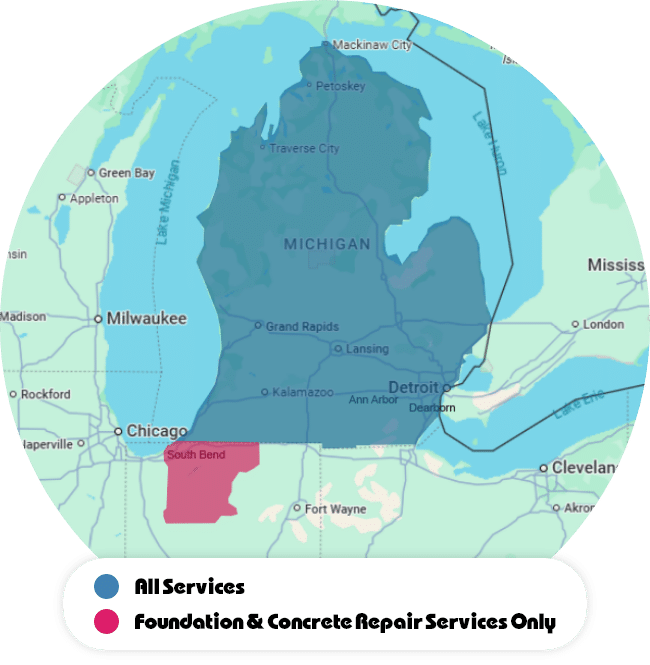Your Foundation and Wall Failure

In addition to the influx of calls we’re receiving because of the heavy rains over the weekend (with plenty more in the forecast tonight and tomorrow), we are also currently addressing three separate foundation wall cave-ins across the state. While it isn’t uncommon for us to receive a call regarding wall failure, three simultaneous full cave-ins is an anomaly. Let’s take a look at what leads to foundation wall failure, and what you (and we) can do about it.
Soil Expansion
If you read our explanation of the drought cycle, you might recognize that we’re currently in the rainy part of the cycle. It didn’t rain much for weeks, allowing the ground to dry out. This causes the soil to shrink and contract, leaving the foundation unsupported and vulnerable to shifting. Once the rain came, the soil expanded rapidly. This expansion puts pressure on the walls, which in addition to causing trouble on its own, can be doubly worrisome because the pressure may be exerted on an already unstable wall that shifted when the soil first contracted.
The pressure exerted on foundation walls can cause bowing and/or cracking, and it only gets worse with each contraction and expansion cycle. A wall bowing even a few inches is considered unsafe.
Soil Erosion
While soil can expand and contract directly against the foundation walls, it can also erode below the slab. When this happens, the slab may shift, sink, or even crack, leaving the wall(s) unsupported. With a lack of support below and the weight of the house above, foundation walls are again at risk for bowing, leaning, and cracking.
What You Can Do
A bowing wall does not mean your wall will cave in. Not even a cracked wall means collapse is imminent. But structural issues are where early action is vital for both safety and cost.
First, it’s important to check out your basement walls every so often. Look for cracks and noticeable leans. And even if you don’t see anything obvious in the basement, keep an eye out upstairs. Simple things like doors that are difficult to close and sticking windows can be signs of foundation settlement. Also, watch for cracks emanating from doorways and gaps between baseboards and the floor.
What We Can Do
We have a variety of products to create solutions for bowing, leaning, or cracked walls, as well as sinking and/or cracked slabs.
PowerBraces are steel I-Beams that are secured to the joists with steel brackets to stabilize bowing, tilting walls without the need for exterior excavation. PowerBraces can be tightened over time to help return the wall to its original position.
GeoLock Wall Anchors are made of galvanized steel and, like the name suggests, are anchored in stable soil away from the home to stabilize bowing walls. Like PowerBraces, they can also be tightened to help straighten the walls.
Helical and Push Piers are drilled deep into the ground into stable soil. Once secured, the weight of the home rests on the piers instead of the shifting soil. Piers have the opportunity to help lift a sinking slab to its original position and prevent further sinking.









